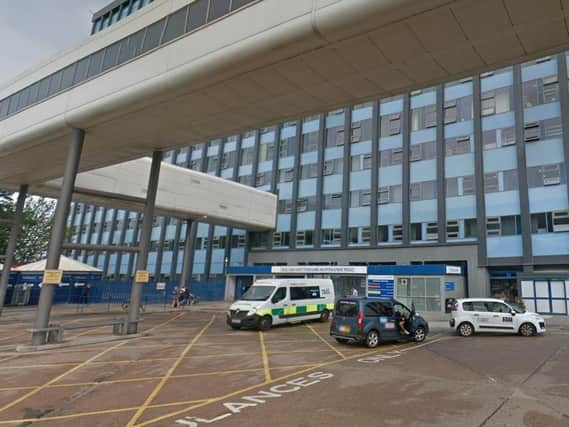Former Labour party official from Beverley awarded nearly £1m in damages by NHS trust after 'devastating' stroke


Former local Labour Party chairman Alan Ablett, from Beverley, suffered “devastating, life-changing” consequences when he had the stroke in 2014.
However it took another seven years for Hull University Teaching Hospitals NHS Trust to admit fault, following a legal battle.
Advertisement
Hide AdAdvertisement
Hide AdMr Ablett, from Beverley, first went to his GP after holidaying in France and noticing his speech was becoming slurred at times and he was dropping things and feeling weak and tired.
Following an urgent admission to Hull Royal Infirmary he was diagnosed as having had a “mini-stroke”, or transient ischaemic attack, caused by a temporary disruption in the flow of blood to part of the brain.
However he wasn’t put on blood-thinning medication and after a week in hospital was discharged home where he continued to have symptoms.
He returned to hospital on three consecutive days just over three weeks later and was finally admitted again after having problems with his sight, his left eyelid dropping and weakness in his left arm and side.
Advertisement
Hide AdAdvertisement
Hide AdDespite having suffered a further stroke, it was another six days before he was put on a blood thinning drug called Apixaban.
Mr Ablett, now 65, said he was still a “huge fan of the NHS”, and was looking to buy a bungalow, which would be more suitable for his needs.
He had been about to start a new job, but was left unable to drive and struggling to walk any distance or stand for long periods.
Mr Ablett said the stroke had a huge impact on both him and his wife Elaine, who has had to look after him and take on all the work around the house.
Advertisement
Hide AdAdvertisement
Hide AdHe said: “The stoke I suffered changed life for me and Elaine as I am simply not able to do what I used to.
“I have issues with my balance and my eyesight and I can’t help out around the house like I used to.
“We used to enjoy a very sociable life seeing friends at weekends and going to the gym, but I haven’t been able to do that.
“I also had to give up my role as chairman of the local Labour Party which I enjoyed as I simply couldn’t follow the meetings.”
Advertisement
Hide AdAdvertisement
Hide AdFor years the Hull hospital trust denied that the failure to give Mr Ablett the medication immediately was a contributory cause, but following representations between legal parties, it finally admitted fault and agreed a £950,000 settlement to prevent the matter going to court.
Solicitor Chris Moore, joint head of clinical negligence at Hudgell Solicitors, who represented Mr Ablett, said his family history of hypertension and the fact his mother had suffered a stroke aged 52, should have been taken into consideration.
The mini-stroke should have been a “red flag”, he said, to prescribe anti-coagulants rather than anti-platelet agents such as aspirin and clopidogrel, which do prevent clotting, but were not appropriate in this case.
He said: “The failure to provide the right medication in light of clear evidence of him having suffered some form of a stroke was below the standard of care expected.
Advertisement
Hide AdAdvertisement
Hide Ad"It was only after we had to take the step of issuing proceedings against the trust to take this matter to court, and it was listed for trial, that the trust admitted Mr Ablett would not have suffered his stroke had he been given the medication.”
Hull University Teaching Hospitals NHS Trust has been approached for a comment.
Comment Guidelines
National World encourages reader discussion on our stories. User feedback, insights and back-and-forth exchanges add a rich layer of context to reporting. Please review our Community Guidelines before commenting.